#Jeffrey Kalinsky
Text


theory spring 2024 | looks (from top) 35 and 29
theory courtesy photos via voguerunway.com
#theory#fashion#new york fashion week#nyfw#spring 2024#utilitarian luxe#details#minimalism#sequins#jeffrey kalinsky#high low#tee#separates#knitwear
2 notes
·
View notes
Text


Theory f/w 2023 rtw
Creative Director Jeffrey Kalinsky
Models Celina Ralph, Jin Rong Huang, Puck Schrover, Jin Rong Huang, Chloe Chaiyoon Oh & Caren Jepkemei
Fashion Editor/Stylist Rae Boxer
Makeup Artist Susie Sobol
Hair Stylist Mustafa Yanaz
Casting Director Rosie Vogel
Newest Cool on Instagram
⠀⠀⠀⠀⠀⠀⠀⠀⠀⠀⠀⠀ ⠀⠀⠀
#theory#newestcool#newest cool#paris fashion show#modest high fashion#in theory#theory project#runway collection#runway show#runway details#fashion runway#fall winter 2023#f/w 2023#fw2023#fw23#automne/hiver
11 notes
·
View notes
Text
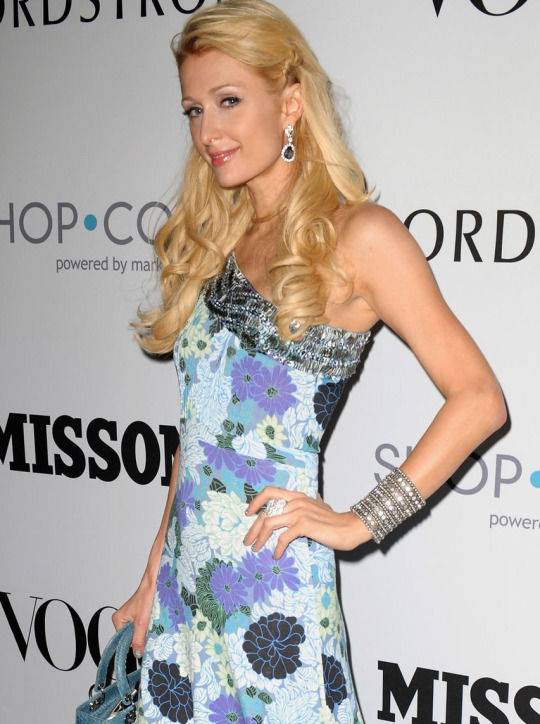
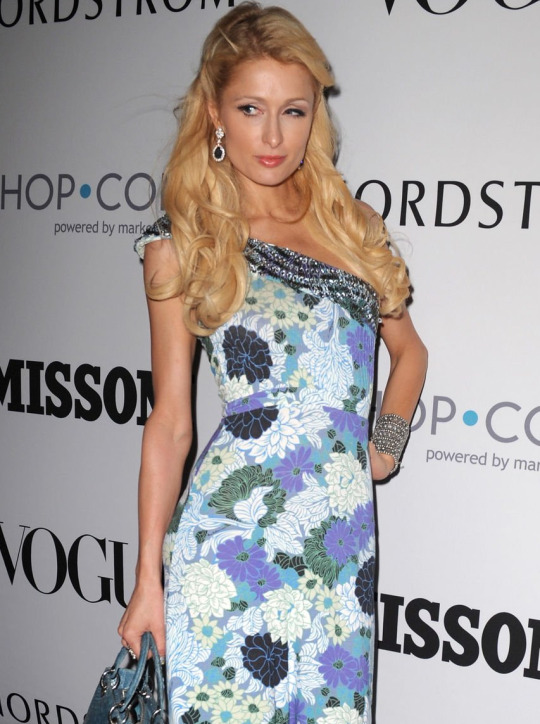


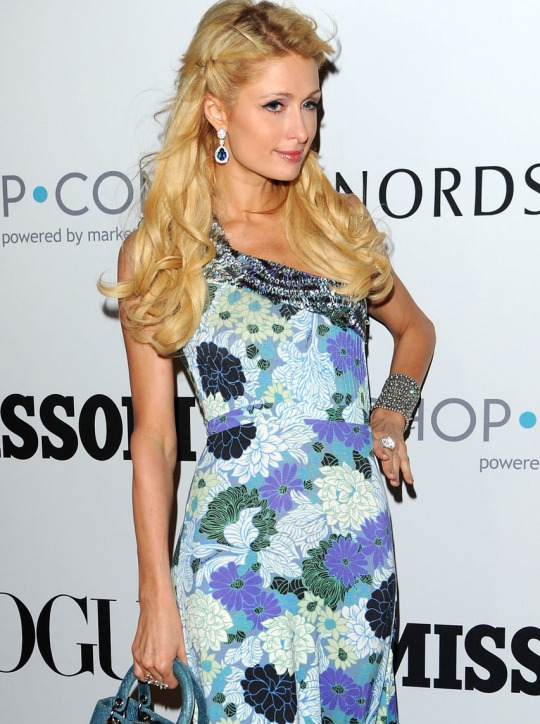




December 03, 2011 — Loren Ridinger And Jeffrey Kalinsky Host Evenings In Vogue With Angela Missoni And Vittorio Missoni For Exclusive Summer 2012 Missoni Preview Presented By Nordstrom.
Paris Hilton attends Evenings in Vogue with Angela Missoni and Vittorio Missoni for exclusive summer 2012 preview presented by Nordstrom at Casa de Suenos in Miami.
2 notes
·
View notes
Text
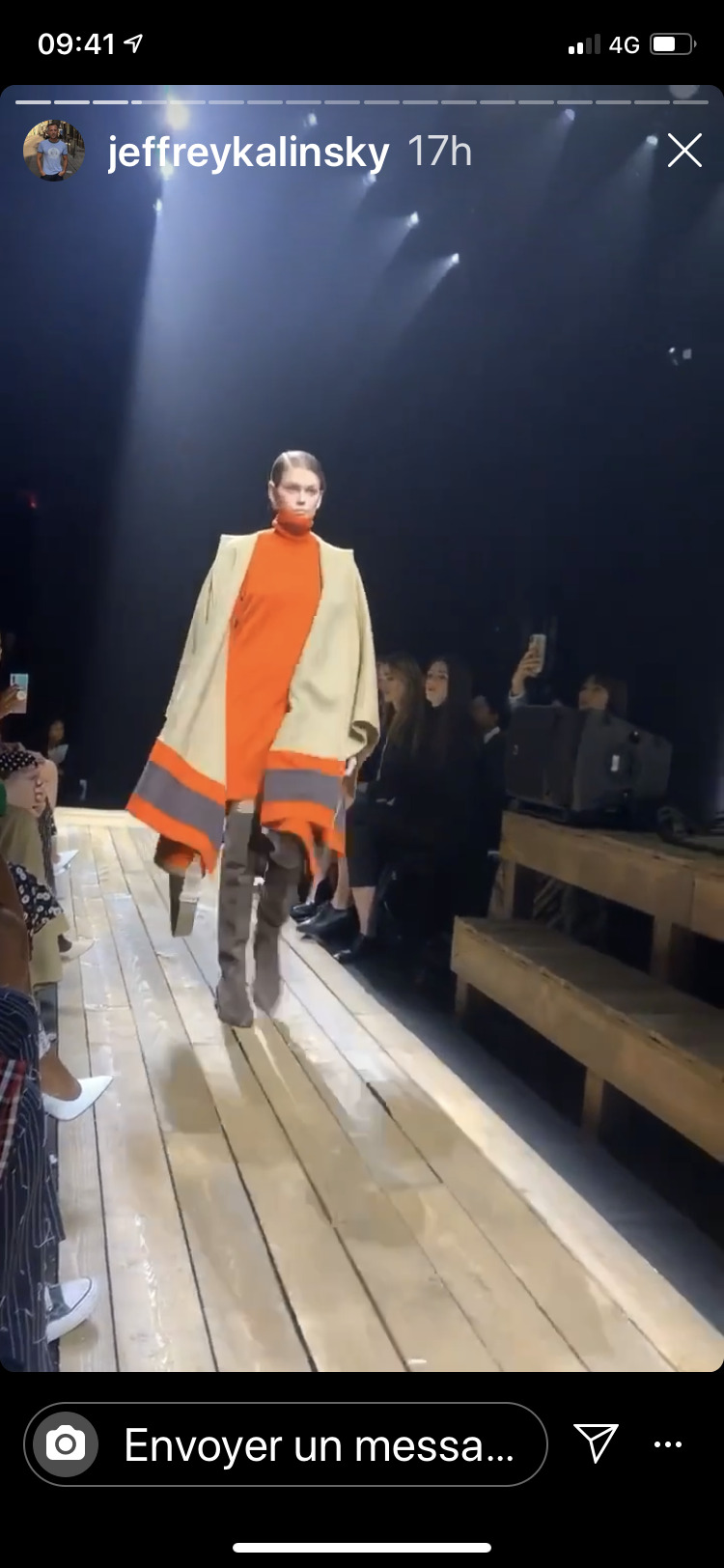
Michael Kors photo Jeffrey.
1 note
·
View note
Text
I was once again blow away by the generosity and fabulous-ness at Jeffrey Fashion Cares this week! The sold-out event took place at Phipps Plaza in Buckhead where we enjoyed a festive cocktail reception and silent auction followed by a live auction and runway show featuring Jeffrey Kalinsky’s style selections from high-end designers including Celine, Christian Dior, Givenchy, Calvin Klein, Dries Van Noten, Sacai, Saint Laurent Paris, Balenciaga, Christian Louboutin and Manolo Blahnik. The annual fashion forward x philanthropic event was once again hosted by event chairs Lila Hertz, Jeffrey McQuithy and Louise Sams.
Supporting Atlanta Charities for over 25 Years
The 26th anniversary of Jeffrey Fashion Cares once again benefitted Susan G. Komen Greater Atlanta, the Atlanta AIDS Fund (AAF), and the Medical University of South Carolina. Over the course of its history, Jeffrey Fashion Cares has raised more than 15 million dollars for its beneficiaries.
The 2018 Sponsors included: Host of the Night – Phipps Plaza; Toast of the Night – Nordstrom; and Presenting – Blue Sky Agency, eventologie, Jeffrey Atlanta | New York, MAGNUM Co., and The Tavern at Phipps.
[bctt tweet=”Over the course of its history, Jeffrey Fashion Cares has raised more than 15 million dollars for its beneficiaries.” username=”dannamariet”]
This slideshow requires JavaScript.
Jeffrey Kalinsky’s Fall Trend Forecast
If there is one bold font message from the Fall 2018 shows, it’s that fashion is forever changing. In a world where both menswear and womenswear are being presented together, brands are evolving from the notion of seasonal collections.
[bctt tweet=”If we had to choose one word to describe the season, it is #EMPOWERMENT.” username=”fashioncares”]
The expression of femininity came in many different shapes and sizes. From sharp shoulder outerwear, to an array of shine and iridescent colors, Fall 2018 was anything but safe.
Other notable trends on the runways:
Sparkle: Traditional sequins just don’t cut it! Your favorite knits, dresses, and coats have been transformed into exploded novelty items. The whirl of palettes storming down the runway was hard to miss as well as the shimmering jumpsuits.
Oversize: Enormous fashion, anyone? Don’t be afraid to layer up with 2-in-1 pieces or oversized strong shoulder outerwear reminiscent of the 80’s. Designers are delivering exciting collaborations with this trend.
Sports: Go team go! Many designers took to the sports culture, each creating their own athletic inspired merchandise.
Neon: Not afraid of color! Fall 2018 brings you iridescent dresses that can be seen from a mile away. On the runway, there were eye-popping neons (pink, green, and orange) in every type of fabric imaginable, including florescent infused knits.
Leopard: Still goin’ strong.
Plaid: Plaid looked richer than ever this season. Perfect tailoring to strong outerwear, all featuring plaid or plaid prints.
Runway photos by Ben Rose
Follow Jeffrey Fashion Cares on Twitter // Facebook // Instagram
Jeffrey Fashion Cares 2018 + Fall Trend Forecast I was once again blow away by the generosity and fabulous-ness at Jeffrey Fashion Cares this week!
0 notes
Link
When Diane von Furstenburg first moved her company to the Meatpacking District in Manhattan, the neighborhood was not the most ideal place for a luxury fashion brand.
“I moved to the Meatpacking District 20 years ago when I bought a small carriage house on West 12th Street,” said von Furstenberg. “I turned it into a design studio and showroom, and then added a mini shop in the small house next door. The neighborhood was run-down and not a typical location to drop in a fashion house, but I didn’t care.”
But since, a slew of fashion brands including Hermès, Madewell and Jeffrey have set up shop there, helping to restore the Meatpacking District as an area for fashion retail that can compete with SoHo and Hudson Yards. It had its heyday in the early 2000s, before brands like Stella McCartney and Moschino left the neighborhood. As brick-and-mortar retail continues to be an important factor for fashion brands, many brands are taking to the area — a welcome alternative to other, overstuffed neighborhoods in New York City.
While SoHo has become known as NYC’s neighborhood for experimental pop-ups and retail “experiences,” and Hudson Yards is establishing itself as the place for ultra-maximalist retail, Meatpacking has been quietly building up a reputation for a middle-of-the-road approach. It’s a place where you can find traditional high-end retail like Jeffrey next to an experimental pop-up from Loro Piana, which LVMH said in its recent earnings is driving a significant boost to the Loro Piana’s footwear category.
“For us, the idea was to offer our customers a bit more of an experience and not something traditional,” said Lauren Cardenas, gm of Sneakersnstuff, the European sneaker retailer that opened its first U.S. store in Meatpacking in 2017. “Meatpacking is a destination. You can go to SoHo and just walk around and bump into a lot of stores. But you go to Meatpacking because you live here or because there’s a particular store you want to go to. It’s like a mini 5th Avenue here.”
Cardenas estimates that about 50% of the customers that come through the store are tourists. Jeffrey Kalinsky, vp and designer fashion director at Nordstrom and founder of Jeffrey New York, the seminal fashion store that has been in Meatpacking for two decades, made a similar estimate. He guessed that half of Jeffrey visitors are tourists, 25% are from New York’s other boroughs and neighborhoods, and 25% are Meatpacking locals.
Part of the recent growth comes from favorable rent prices. Average rents in SoHo are around $540 per square foot per year, while in Meatpacking, they’re around $280. But Meatpacking’s success also comes from the public development designed to bring in more tourists and visitors.
In the beginning of August, the Meatpacking’s Business Improvement District will open the long-planned public plazas along Gansevoort Street and Ninth Avenue, after years of planning and development.
“The neighborhood first had significant capital reconstruction four years ago,” said Jeffrey LeFrancois, the executive director of the Meatpacking District Management Association. “This year, we will have all these historic plazas back, with tables, chairs, planters. As cities around the world know, public space is good for business. North of 20,000 square feet of public space will be made available. Right now, Meatpacking is in a moment of re-discovery.”
These projects to beautify and preserve the neighborhood’s historic locations have attracted a number of intriguing fashion brands, both old and new. Last April, Hermès opened a flagship store in Meatpacking, designed to pay tribute aesthetically to the neighborhood’s industrial heritage.
“Not long ago, you wouldn’t have mentioned Madison Avenue and the Meatpacking District in the same breath,” said Axel Dumas, CEO of Hermès. “Setting up shop in the Meatpacking District is an incredible source of energy for us, as well as a wonderful way to reconnect to our roots.”
DVF also chose to stay closely aligned with the neighborhood’s industrial vibe.
“Eventually, we outgrew our original space here, and that’s when I made the move to 14th and Washington Street,” von Furstenburg said. “The building needed to be historically preserved, so we saved the façade but created a beautifully bright, sunny interior.”
But Meatpacking hasn’t been without its struggles. Earlier this month, Milk Studios, the neighborhood’s iconic creative agency that has hosted countless fashion events and runway shows since the ’90s, abruptly announced that it will be leaving the neighborhood next year and that Google will be taking over the building. Google also acquired the building across the street from Milk last year. The influx of Google employees will likely be a contributing factor to the neighborhood’s continued growth.
“In the past 20 years, I’ve seen big changes,” said Kalinsky. “In the last five years, the most notable thing to happen was The Whitney reopening, and things like that certainly bring a lot of people in.”
While SoHo increasingly becomes the home of experimental retail and DTC shops, and Hudson Yards aims for ultra-luxury mall shopping, the brands that have called Meatpacking home have no plans to leave any time soon.
“Clearly I love this neighborhood, and I believe in this neighborhood,” said von Furstenburg. “I’m proud to have been witness to the evolution of this district.”
2 notes
·
View notes
Text
Just learned the boutique owner who was once praised as “the next Jeffrey Kalinsky” is now a real estate agent trying to build a reality tv show and failing on his own dime.
0 notes
Text
PAC Notebook

The Westminster women ran away with the PAC outdoor track and field championship trophy as the Titans 190 points as well ahead of runner-up Washington & Jefferson’s 110.75. Bethany was fifth with 65 while Franciscan came in ninth with 29.
Still, the Bison and Barons both received some top-notch individual performances as both had won athlete grab two championship medals.
For Bethany, those were draped around the neck of Riley Meyers. The senior from DuBois, Pa. captured both the 100-meter hurdles in 14.87 and then followed that up with a 1:04.93 clocking in her specialty, the 400 hurdles.
That time in the 400 was a bit slower than her fastest posting from earlier this season, a 1:03.79 at the Grove City Invitational. That was the sixth fastest time in Division III this season and is currently the eighth best mark.
The Barons’ double winner was Alison Bryant, also the team’s individual Cross Country champion from back in March.
Bryant won the 5,000-meter ruin in 18:12.54 and then cruised in the 3,000-meter Steeplechase in 11:04.00. Her 17:29.92 during the 5,000 meters at the Bethany Invitational is the 17th best time nationally.
On the men’s side, the Barons had two individual winners and two runners-up as Franciscan’s strong distance runners again flexed their muscles.
Senior Liam Galligan, like Bryant, the reigning PAC Cross Country champion, doubled up in the 1,500 meters (4:14.50)and the 5,000 meters (15:54.70). In the 1,500, teammate Mark Borek finished in second at 4:16.50 while in the 5,000, it was fellow Baron George Kaftan on Galligan’s heals, clocking a 15:54.84.
The other Barons champion came courtesy of sophomore David Capello in the 400. Capello finished in 50.55.
On the men’s side, Geneva won the team championship with 157 after holding off both Grove City (139) and Westminster (128). The Barons finished fifth with 64 while Bethany was seventh at 57.
Titans, Presidents Dominate PAC Football Honors
Conference champion Westminster and runner-up Washington & Jefferson dominated the all-PAC selections, with the two snagging 15 of the 28 first-team positions.
Titans’ junior linebacker Ian Barr was named the Defensive MVP while Grove City receiver Cody Gustafson was the Offensive MVP. Geneva defensive back James Clark took home Newcomer of the Year honors, with Coach of the Year going to Westminster’s Scott Benzel.
Bethany sophomore defensive back was named second-team all-conference. Westminster’s Dylan Kidder earned second-team kicker honors for his efforts on special teams. Kidder is a senior from East Liverpool.
A number of local products earned honorable-mention honors, including Bethany lineman Braylon Sibley, Waynesburg lineman Chase Espen (St. Clairsville), plus Bethany receivers De’Vaughn McWhorter (Wheeling Park) and Brennan Secrist (Madonna) on offense.
Defensive honorable mention honorees include: Bethany defensive lineman Mohamed Elola, and Waynesburg’s Luke Menges from Union Local. Fellow former Jet Lucas Donley, also playing for Waynesburg, was named to the PAC Sportsmanship Team.
Wise Getting it Done
Bethany’s softball team is continuing its hot streak, winners of six in a row and 13 of its last 16. A big reason for that is the dominant play from freshman pitcher Josie Wise.
Wise has earned PAC Rookie of the Week honors multiple times this season, but finally nudged her way in with the upperclassmen to snag Pitcher of the Week honors—and for good reason.
She turned in a spotless 5-0 week, a save, as the Bison continued their run through PAC competition.
She pitched 29.1 innings, surrendering only two runs on 13 hits. That gave her a 0.48 ERA for the week with 23 strikeouts.
Wise began the week as the PAC leader in strikeouts with 97, but a double-header against Saint Vincent was canceled, allowing Chatahm’s Kayla Gee to overtake her with 118. Wise is first in the PAC in innings pitched and appearances, second in strikeouts, wins (15), and opponent’s batting average (.231). Her 2.52 ERA is currently sixth.
She’s making a strong push, not only for newcomer of the year but also first-team all-PAC.
Bethany is currently third in the PAC standings behind Westminster and Geneva. The Bison are 1-7 in games against the conference’s top two teams, owning a win against the Golden Tornado.
Weekly Conference Honors
The following athletes were honored last week by the PAC as the top performer and rookie in their respective sports:
Players of the WeekRookies of the WeekMen’s Tennis: David Lynn, Saint VincentMen’s Tennis: Jack Booker, Grove CityMen’s Lacrosse Offensive/Defensive: Michael La Forte, Grove City; Ben Neal, ChathamMen’s Lacrosse: Griffin AgawaWomen’s Lacrosse Offensive/Defensive: Bria Braddock, Chatham; Kaitlyn Brown, W&JWomen’s Lacrosse: Aisa Uhler, W&JBaseball Hitter/Pitcher: Peter Kalinski, W&J; Tate Ostrowski, Grove CityBaseball: Mike Bell, WaynesburgSoftball Hitter/Pitcher: Haley Bedalota, Westminster; Josie Wise, BethanySoftball: Jordan Kinz, W&JMen’s Soccer: Hunter Hardin, Grove City; Jeffrey Biddle, Grove CityMen’s Soccer: Pascal Despinos, ChathamWomen’s Soccer Offensive/Defense: Hailey Weinert, Grove City; Columbia Harkrader, Grove CityWomen’s Soccer: Juliana Rubino, Franciscan
Note: The PAC Notebook is a weekly rundown of some of the top news and notes from around the Presidents' Athletic Conference.
Read the full article
0 notes
Text
What 2020 Was Like for People in the Retail Industry

The retail industry was in the midst of a transformation before 2020. But the onset of the pandemic accelerated that change, fundamentally reordering how and where people shop, and rippling across the broader economy.
Many stores closed for good, as chains cut physical locations or filed for bankruptcy, displacing everyone from highly paid executives to hourly workers. Amazon grew even more powerful and unavoidable as millions of people bought goods online during lockdowns. The divide between essential businesses allowed to stay open and nonessential ones forced to close drove shoppers to big-box chains like Walmart, Target and Dick’s and worsened struggling department stores’ woes. The apparel industry and a slew of malls were battered as millions of Americans stayed home and a litany of dress-up events, from proms to weddings, were canceled or postponed.
This year’s civil unrest and its thorny issues for American society also hit retailers. Businesses closed because of protests over George Floyd’s killing by a white police officer, and they reckoned with their own failings when it came to race. The challenges faced by working parents, including the cost and availability of basic child care during the pandemic, were keenly felt by women working at stores from CVS to Bloomingdale’s. And there were questions about the treatment of workers, as retailers and their backers treated employees shoddily during bankruptcies or failed to offer hazard pay or adequate notifications about workplace Covid-19 outbreaks.
Many Americans felt the effects of the retail upheaval — the industry is the second-biggest private employment sector in the United States — and some shared their experiences this year with The New York Times.
‘That’s what I did my whole life’
Joyce Bonaime, a 63-year-old in Cabazon, Calif., has worked in retailing since the 1970s. In the past 14 months, she became one of many store employees whose lives were upended by bankruptcies — first at Barneys New York and more recently at Brooks Brothers.
Ms. Bonaime had spent about 10 years as a full-time stock coordinator for a Barneys outlet at Desert Hills Premium Outlets near her home, overseeing the shipping and receiving of designer wares, when the retailer filed for bankruptcy and liquidated late last year.
“Barneys treated people very badly at the end there,” Ms. Bonaime said. The retailer, she said, sent inconsistent messages about severance payments and the timing of store closures that limited people from finding other jobs just before the holiday shopping season.
After Barneys, Ms. Bonaime secured a full-time stockroom position at Brooks Brothers in the same outlet mall. But the pandemic forced the store to temporarily close in March, and she was furloughed. She anticipated returning once the store reopened this summer. But Ms. Bonaime’s job was terminated this month and she lost her health benefits. She is now collecting unemployment checks for the first time in her life.
When Ms. Bonaime started her career, working at shoe stores and completing a management training program at one chain, retailers had a different relationship with employees and communities, she said.
“We went through training on the bones in the foot and the muscles; we knew a lot about our industry,” she said. “We would reach out to local high schools and work with the cheerleading team and find a shoe they liked for outfits and give them a discount and make sure they had the right sizes.”
Ms. Bonaime, who is getting by right now, feels stuck. She had planned to work a few more years before retiring, but her options are limited. Businesses at the outlet mall are struggling — and it was already hard to interview last year as a woman in her 60s, she said. Amazon is hiring, but she is concerned about the risk of accidents in a warehouse.
“This pandemic just changes everything because I would have no problem getting a job otherwise,” she said. “I just don’t think there’s going to be anything in retail, and that’s what I did my whole life.”
‘I was collateral damage’
Soon after the pandemic hit, Nordstrom said it would permanently close its three high-end Jeffrey boutiques, which were founded by Jeffrey Kalinsky and acquired by the retailer in 2005. Mr. Kalinsky, a Nordstrom executive who had focused on bringing designer apparel to the retailer, retired as part of the move.
The Jeffrey stores, in New York, Atlanta and Palo Alto, Calif., had dressed the likes of Gwyneth Paltrow and even been lampooned on “Saturday Night Live.” The first location, in Atlanta, would have celebrated its 30th anniversary in August.
Mr. Kalinsky, 58, said in an interview that he was recovering from Covid-19 at the end of March when he became aware that the stores might remain shut after a temporary closure.
“It felt like I had a gun pointed at me,” he said. “The folks I always dealt with at Nordstrom were always very transparent, and I can only surmise that they were looking at how to position themselves to get through this period — and I was collateral damage.”
He had once told the Jeffrey staff that it was like the original cast in a Broadway musical, performing at an “amazing level” for customers every day. The hardest part of this year was telling employees about the closing, he said.
“That day was probably the most difficult, emotional day of my entire life,” he said. “I felt just gutted. It was indescribable.” Employees have told him that they “miss the merchandise, they miss the edit, they miss the specialness.”
His goal was for Jeffrey to carry the best merchandise but “sell it in an environment that was very democratic,” he said. “I wanted to showcase it all and wanted it all to be next to each other. I wanted the friction of Gucci next to Dries next to Comme des Garçons. I wanted to feel the tension in a good way because that, in my opinion, is how the perfect closet is.”
Mr. Kalinsky hopes to find a job designing for an American brand, saying he is not prepared to retire from retailing. He wonders if Jeffrey could have survived the pandemic by working with vendors and landlords.
“We had an impressive business, a wonderful clientele, and we would have been fine — but did we have a piggy bank for Covid? No,” he said.
A man with a van
Trent Griffin-Braaf started this year feeling more confident than ever. The transportation company he created to ferry guests from hotels in the Albany, N.Y., area to local attractions like the racetrack in Saratoga Springs was catching on.
But when the coronavirus shut down tourism, weddings and conferences, Mr. Griffin-Braaf’s passenger vans were idled and his business was in jeopardy. “We were really in a rough place,” he said.
In the late summer, his company became a carrier for Amazon and shifted to e-commerce deliveries. His team of 70 drivers and other staff include immigrants from Africa and India, workers laid off from restaurants, a struggling nail-salon owner and recent college grads “just trying to figure it out” during the pandemic.
His drivers cover a 150-mile radius around Albany, including many rural areas where the number of Amazon shoppers is increasing, he said. “All you see around here is Amazon,” he said. “Come work for Amazon.”
Many of his drivers were earning 10 hours of overtime a week during the peak holiday season. “I feel blessed to be busy, because so many people aren’t right now,” he said.
Mr. Griffin-Braaf, 36, has not given up on passenger vans. He has started driving workers living in parts of Albany with limited public transportation to their jobs at distribution centers and other businesses far from bus lines.
On the weekends, he volunteers the vans to drive families to visit loved ones in upstate prisons. Mr. Griffin-Braaf, who served time in prison years ago, said that long term, he hoped to have tractor-trailers to move e-commerce packages across the country, and to offer van service in other “transportation deserts” around the state so people could get to work.
“I know how hard it is to get a job if you don’t have a car, and I have seen how hard it is when you don’t get visits in prison,” he said. “I have lived these things.”
‘We are glad you are here’
Lauren Jackson and her two sisters inadvertently chose the wrong time to open the first Black-owned beauty supply store in their hometown, Buffalo: March 7, two weeks before the state ordered them to shut down.
So the sisters reopened it as an “essential business,” stocking hand sanitizers, masks and other pandemic necessities. Their store, the Hair Hive, reopened in early April, which helped them build a customer base while competitors stayed closed.
“Everything happens for a reason,” said Ms. Jackson, 28.
She and her sisters, Danielle Jackson and Brianna Lannie, had talked about opening the store for several years. It is five minutes from their childhood home on the east side of Buffalo, a predominantly Black neighborhood where their parents still live.
The sisters were initially intimidated about trying to break into the well-established industry.
“We didn’t want to tell anyone so they wouldn’t say, ‘You can’t compete with them,’” Ms. Jackson said. “We didn���t even tell our parents.”
The sisters got a loan from a family member and another from a Buffalo nonprofit. Lauren Jackson said she had watched other Black-owned businesses in her neighborhood come and go over the years, including salons, barbershops and restaurants that often closed because the younger generation didn’t want to take over after the founding family members retired. Ms. Jackson wants to break that trend.
“A lot of people come into the store because we are Black-owned,” she said. “They feel comfortable knowing we can relate with what’s going on with their hair. They tell us, ‘We are glad you are here.’”
‘Scared of what might be coming’
In June, as the first wave of the coronavirus was finally coming under control in New York, Feisal Ahmed got a call from his manager at Macy’s.
Would he like to return to his job selling luxury watches when the store in Herald Square reopened? “I am already there,” he told his boss. “Put me first in line.”
Mr. Ahmed was in his early 20s and a recent emigrant from Bangladesh when he started working at Macy’s in 1994. He met his wife in the store, was able to make a down payment on a house in Astoria, Queens, and saved up enough money to start his own laundry, which he eventually sold.
“I owe a lot to this job,” he said.
But after initial feelings of relief and excitement to return to work after four months of lockdowns, reality set in for Mr. Ahmed. He has gone some days without selling a single watch, for which he would earn a commission.
Last week, business picked up for a few days, driven by last-minute Christmas shopping, but it was nowhere near a normal holiday pace. “The pandemic, job security — people are scared to spend money,” he said.
Still, Mr. Ahmed feels lucky. In New York City, retail jobs make up 9 percent of private-sector employment, and many have been slow to return. At stores selling clothing and clothing accessories, employment is down more than 40 percent from a year ago, according to a recent report by the state comptroller’s office.
Mr. Ahmed said that as a member of the Retail, Wholesale and Department Store Union, he had certain job protections. But he worries about what the winter will bring, as the pandemic continues to keep many shoppers away.
“Employees are scared of what might be coming,” he said.
Multiple Service Listing for Business Owners | Tools to Grow Your Local Business
www.MultipleServiceListing.com
from Multiple Service Listing https://ift.tt/35EywZB
0 notes
Link
Retailing’s Tumultuous 12 months Started Earlier than the Pandemic The retail trade was within the midst of a change earlier than 2020. However the onset of the pandemic accelerated that change, basically reordering how and the place folks store, and rippling throughout the broader financial system. Many shops closed for good, as chains lower bodily areas or filed for chapter, displacing everybody from extremely paid executives to hourly employees. Amazon grew much more highly effective and unavoidable as hundreds of thousands of individuals purchased items on-line throughout lockdowns. The divide between important companies allowed to remain open and nonessential ones pressured to shut drove customers to big-box chains like Walmart, Goal and Dick’s and worsened struggling shops’ woes. The attire trade and a slew of malls had been battered as hundreds of thousands of Individuals stayed house and a litany of dress-up occasions, from proms to weddings, had been canceled or postponed. This 12 months’s civil unrest and its thorny points for American society additionally hit retailers. Companies closed due to protests over George Floyd’s killing by a white police officer, and so they reckoned with their very own failings when it got here to race. The challenges confronted by working dad and mom, together with the associated fee and availability of fundamental baby care through the pandemic, had been keenly felt by girls working at shops from CVS to Bloomingdale’s. And there have been questions across the remedy of employees, as retailers and their backers handled staff shoddily throughout bankruptcies or failed to supply hazard pay or ample notifications about office Covid-19 outbreaks. Many Individuals felt the retail upheaval — the trade is the second-biggest non-public employment sector in america — and a few shared their experiences this 12 months with The New York Instances. ‘That’s what I did my entire life’ Joyce Bonaime, a 63-year-old in Cabazon, Calif., has labored in retailing for the reason that Seventies. Prior to now 14 months, she turned one among many retailer staff whose lives had been upended by bankruptcies — first at Barneys New York and extra lately at Brooks Brothers. Ms. Bonaime had spent about 10 years as a full-time inventory coordinator for a Barneys outlet at Desert Hills Premium Retailers close to her house, overseeing the delivery and receiving of designer wares, when the retailer filed for chapter and liquidated late final 12 months. “Barneys handled folks very badly on the finish there,” Ms. Bonaime mentioned. The retailer, she mentioned, despatched inconsistent messages about severance funds and the timing of retailer closures, which restricted folks from discovering different jobs simply earlier than the vacation procuring season. After Barneys, Ms. Bonaime secured a full-time stockroom place at Brooks Brothers in the identical outlet mall. However the pandemic pressured the shop to briefly shut in March, and he or she was furloughed. She anticipated returning as soon as the shop reopened this summer time. However Ms. Bonaime’s job was terminated this month and misplaced her well being advantages. She is now accumulating unemployment checks for the primary time in her life. When Ms. Bonaime began her profession, working at shoe shops and finishing a administration coaching program at one chain, retailers had a distinct relationship with staff and communities, she mentioned. “We went by means of coaching on the bones within the foot and the muscle groups; we knew loads about our trade,” she mentioned. “We’d attain out to native excessive faculties and work with the cheerleading crew and discover a shoe they appreciated for outfits and provides them a reduction and ensure they’d the suitable sizes.” Ms. Bonaime, who’s getting by proper now, feels caught. She had deliberate to work a number of extra years earlier than retiring, however her choices are restricted. Companies on the outlet mall are struggling — and it was already exhausting to interview final 12 months as a lady in her 60s, she mentioned. Amazon is hiring, however she is anxious concerning the threat of accidents in a warehouse. “This pandemic simply adjustments every thing as a result of I might don’t have any drawback getting a job in any other case,” she mentioned. “I simply don’t suppose there’s going to be something in retail, and that’s what I did my entire life.” ‘I used to be collateral harm’ Quickly after the pandemic hit, Nordstrom mentioned it could completely shut its three high-end Jeffrey boutiques, which had been based by Jeffrey Kalinsky and bought by the retailer in 2005. Mr. Kalinsky, a Nordstrom govt who had targeted on bringing designer attire to the retailer, retired as a part of the transfer. The Jeffrey shops, in New York, Atlanta and Palo Alto, Calif., had dressed the likes of Gwyneth Paltrow and even been lampooned on “Saturday Evening Dwell.” The primary location, in Atlanta, would have celebrated its thirtieth anniversary in August. Mr. Kalinsky, 58, mentioned in an interview that he was recovering from Covid-19 on the finish of March when he turned conscious that the shops may stay shut after a brief closure. “It felt like I had a gun pointed at me,” he mentioned. “The oldsters I all the time handled at Nordstrom had been all the time very clear, and I can solely surmise that they had been place themselves to get by means of this era — and I used to be collateral harm.” He had as soon as instructed the Jeffrey employees that it was like the unique solid in a Broadway musical, acting at an “wonderful stage” for patrons daily. The toughest a part of this 12 months was telling staff concerning the closing, he mentioned. “That day was in all probability essentially the most troublesome, emotional day of my total life,” he mentioned. “I felt simply gutted. It was indescribable.” Staff have instructed him that they “miss the merchandise, they miss the edit, they miss the specialness.” His aim was for Jeffrey to hold the perfect merchandise however “promote it an setting that was very democratic,” he mentioned. “I wished to showcase all of it and wished all of it to be subsequent to one another. I wished the friction of Gucci subsequent to Dries subsequent to Comme des Garçons. I wished to really feel the strain in a great way as a result of that, in my view, is how the proper closet is.” Enterprise & Economic system Up to date Dec. 23, 2020, 8:59 a.m. ET Mr. Kalinsky hopes to discover a job designing for an American model, saying he isn’t ready to retire from retailing. He wonders if Jeffrey might have survived the pandemic by working with distributors and landlords. “We had a powerful enterprise, a beautiful clientele, and we’d have been nice — however did we now have a piggy financial institution for Covid? No,” he mentioned. A person with a van Trent Griffin-Braaf began this 12 months feeling extra assured than ever. The transportation firm he created to ferry visitors from inns within the Albany, N.Y., space to native sights just like the racetrack in Saratoga Springs was catching on. However when the coronavirus shut down tourism, weddings and conferences, Mr. Griffin-Braaf’s passenger vans had been idled and his enterprise was in jeopardy. “We had been actually in a tough place,” he mentioned. Within the late summer time, his firm turned a provider for Amazon and shifted to e-commerce deliveries. His crew of 70 drivers and different employees embody immigrants from Africa and India, employees laid off from eating places, a struggling nail-salon proprietor and up to date faculty grads “simply attempting to determine it out” through the pandemic. His drivers cowl a 150-mile radius round Albany, together with many rural areas the place the variety of Amazon customers is growing, he mentioned. “All you see round right here is Amazon,” he mentioned. “Come work for Amazon.” Lots of his drivers had been incomes 10 hours of additional time per week through the peak vacation season. “I really feel blessed to be busy, as a result of so many individuals aren’t proper now,” he mentioned. Mr. Griffin-Braaf, 36, has not given up on passenger vans. He has began driving employees residing in elements of Albany with restricted public transportation to their jobs at distribution facilities and different companies removed from bus traces. On the weekends, he volunteers the vans to drive households to go to family members in upstate prisons. Mr. Griffin-Braaf, who served time in jail years in the past, mentioned that long run, he hoped to have tractor-trailers to maneuver e-commerce packages throughout the nation, and to supply van service in different “transportation deserts” across the state so folks might get to work. “I understand how exhausting it’s to get a job should you don’t have a automotive, and I’ve seen how exhausting it’s whenever you don’t get visits in jail,” he mentioned. “I’ve lived these items.” ‘We’re glad you’re right here’ Lauren Jackson and her two sisters inadvertently selected the improper time to open the primary Black-owned magnificence provide retailer of their hometown, Buffalo: March 7, two weeks earlier than the state ordered them to close down. So the sisters reopened it as an “important enterprise,” stocking hand sanitizers, masks and different pandemic requirements. Their retailer, the Hair Hive, reopened in early April, which helped them construct a buyer base whereas opponents stayed closed. “All the things occurs for a purpose,” mentioned Ms. Jackson, 28. She and her sisters, Danielle Jackson and Brianna Lannie, had talked about opening the shop for a number of years. It’s 5 minutes from their childhood house on the east facet of Buffalo, a predominantly Black neighborhood the place their dad and mom nonetheless stay. The sisters had been initially intimidated about attempting to interrupt into the well-established trade. “We didn’t wish to inform anybody in order that they wouldn’t say, ‘You possibly can’t compete with them,’” Ms. Jackson mentioned. “We didn’t even inform our dad and mom.” The sisters acquired a mortgage from a member of the family and one other from a Buffalo nonprofit. Lauren Jackson mentioned she had watched different Black-owned companies in her neighborhood come and go over time, together with salons, barbershops and eating places that usually closed as a result of the youthful era didn’t wish to take over after the founding relations retired. Ms. Jackson needs to interrupt that development. “Lots of people come into the shop as a result of we’re Black-owned,” she mentioned. “They really feel snug realizing we are able to relate with what’s occurring with their hair. They inform us, ‘We’re glad you’re right here.’” ‘Petrified of what could be coming’ In June, as the primary wave of the coronavirus was lastly coming below management in New York, Feisal Ahmed acquired a name from his supervisor at Macy’s. Would he prefer to return to his job promoting luxurious watches when the shop in Herald Sq. reopened? “I’m already there,” he instructed his boss. “Put me first in line.” Mr. Ahmed was in his early 20s and a current emigrant from Bangladesh when he began working at Macy’s in 1994. He met his spouse within the retailer, was capable of make a down cost on a home in Astoria, Queens, and saved up sufficient cash to start out his personal laundry, which he finally bought. “I owe loads to this job,” he mentioned. However after an preliminary feeling of aid and pleasure to return to work after 4 months of lockdowns, actuality set in for Mr. Ahmed. He has gone some days with out promoting a single watch, for which he would earn a fee. Final week, enterprise picked up for a number of days, pushed by last-minute Christmas procuring, but it surely was nowhere close to a traditional vacation tempo. “The pandemic, job safety — individuals are scared to spend cash,” he mentioned. Nonetheless, Mr. Ahmed feels fortunate. In New York Metropolis, retail jobs make up 9 p.c of private-sector employment, and lots of have been gradual to return. At shops promoting clothes and clothes equipment, employment is down greater than 40 p.c from a 12 months in the past, in keeping with a current report by the state comptroller’s workplace. Mr. Ahmed mentioned that as a member of the Retail, Wholesale and Division Retailer Union, he had sure job protections. However he worries about what the winter will carry, because the pandemic continues to maintain many patrons away. “Staff are terrified of what could be coming,” he mentioned. Supply hyperlink #began #Pandemic #Retailings #Tumultuous #Year
0 notes
Text
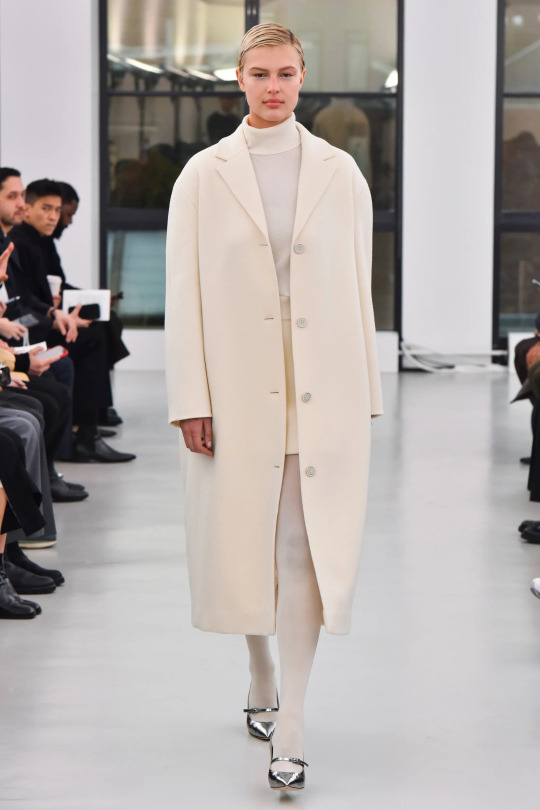
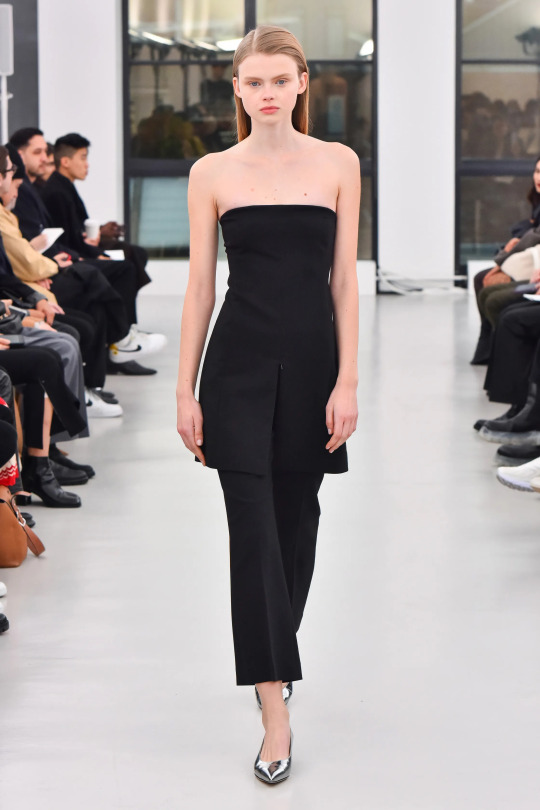
theory fall 2023 | looks (from top) 1 and 36
theory courtesy photos via voguerunway.com
#theory#fashion#new york fashion week#fall 2023#utilitarian luxe ®#suiting#black and white#bustier#outerwear#the power of a good coat#jeffrey kalinsky
8 notes
·
View notes
Text




December 03, 2011 — Loren Ridinger And Jeffrey Kalinsky Host Evenings In Vogue With Angela Missoni And Vittorio Missoni For Exclusive Summer 2012 Missoni Preview Presented By Nordstrom.
Paris Hilton attends Evenings in Vogue with Angela Missoni and Vittorio Missoni for exclusive summer 2012 preview presented by Nordstrom at Casa de Suenos in Miami.
1 note
·
View note
Text
top shirt on wordpress.istyletee one 2020/6/23
top shirt on wordpress.istyletee one 2020/6/23
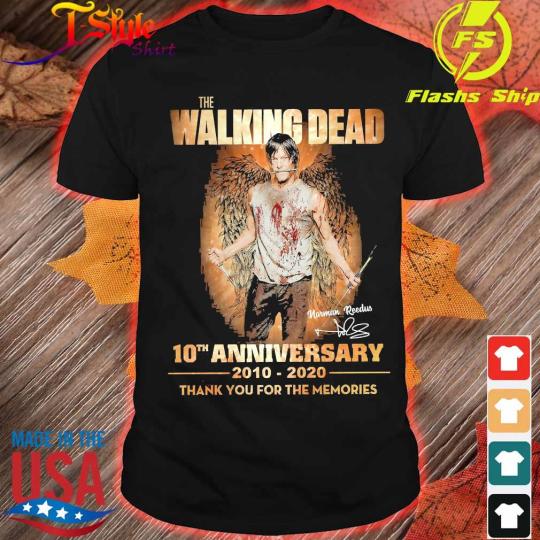
As a retailer, Kalinsky was nothing short of visionary. He opened his first store in his native Atlanta but gained success in New York, where he transformed the top shirt on wordpress.istyletee one 2020/6/23District with his Jeffrey store on West 14th Street. Opening in 1999, the store was one of the first designer boutiques in the area, then still home to meat distributors and nightclubs. Where…
View On WordPress
0 notes
Text
top shirt on wordpress.istyletee one 2020/6/23
top shirt on wordpress.istyletee one 2020/6/23
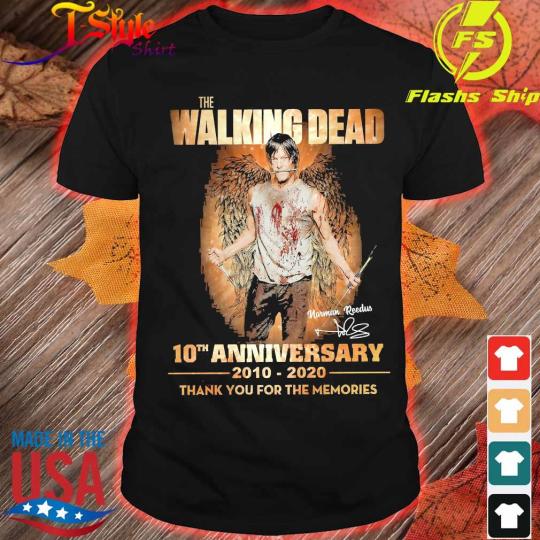
As a retailer, Kalinsky was nothing short of visionary. He opened his first store in his native Atlanta but gained success in New York, where he transformed the top shirt on wordpress.istyletee one 2020/6/23District with his Jeffrey store on West 14th Street. Opening in 1999, the store was one of the first designer boutiques in the area, then still home to meat distributors and nightclubs. Where…
View On WordPress
0 notes
Text
Tyson Food The 4th of July sunflower American flag shirt
Tyson Food The 4th of July sunflower American flag shirt

The New York outpost of Jeffrey not only transformed retail for its location but also for how products were displayed. If the mood at Bergdorf Goodman was plush and posh and at Barneys New York it was edgy and esoteric, the vibe at Jeffrey was that of an art gallery, with a clean open floor plan and minimal decor. “I don’t like anything to distract from the merchandise,” Kalinsky told Vogue when…
View On WordPress
0 notes
Photo

Jeffrey Kalinsky Muses on Jeffrey New York’s Milestone on West 14th Street https://ift.tt/3158olE
0 notes